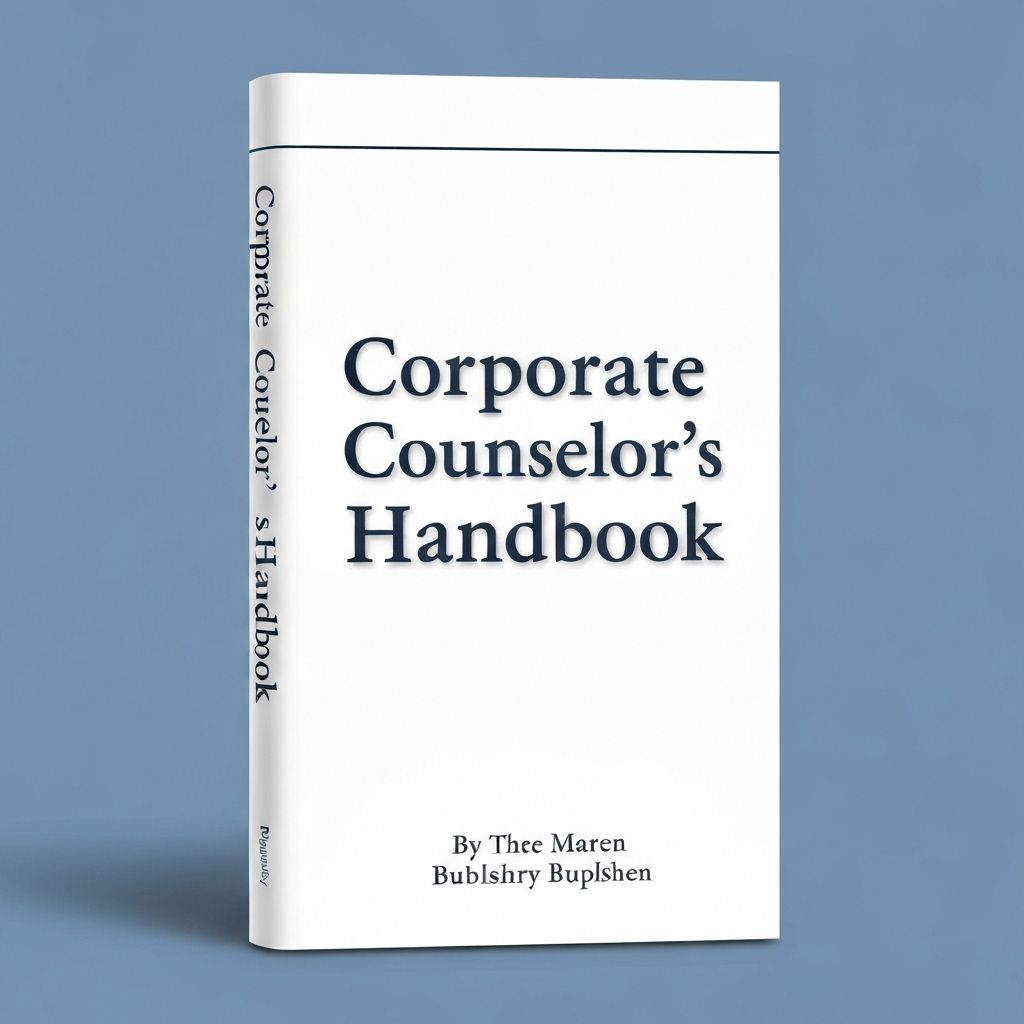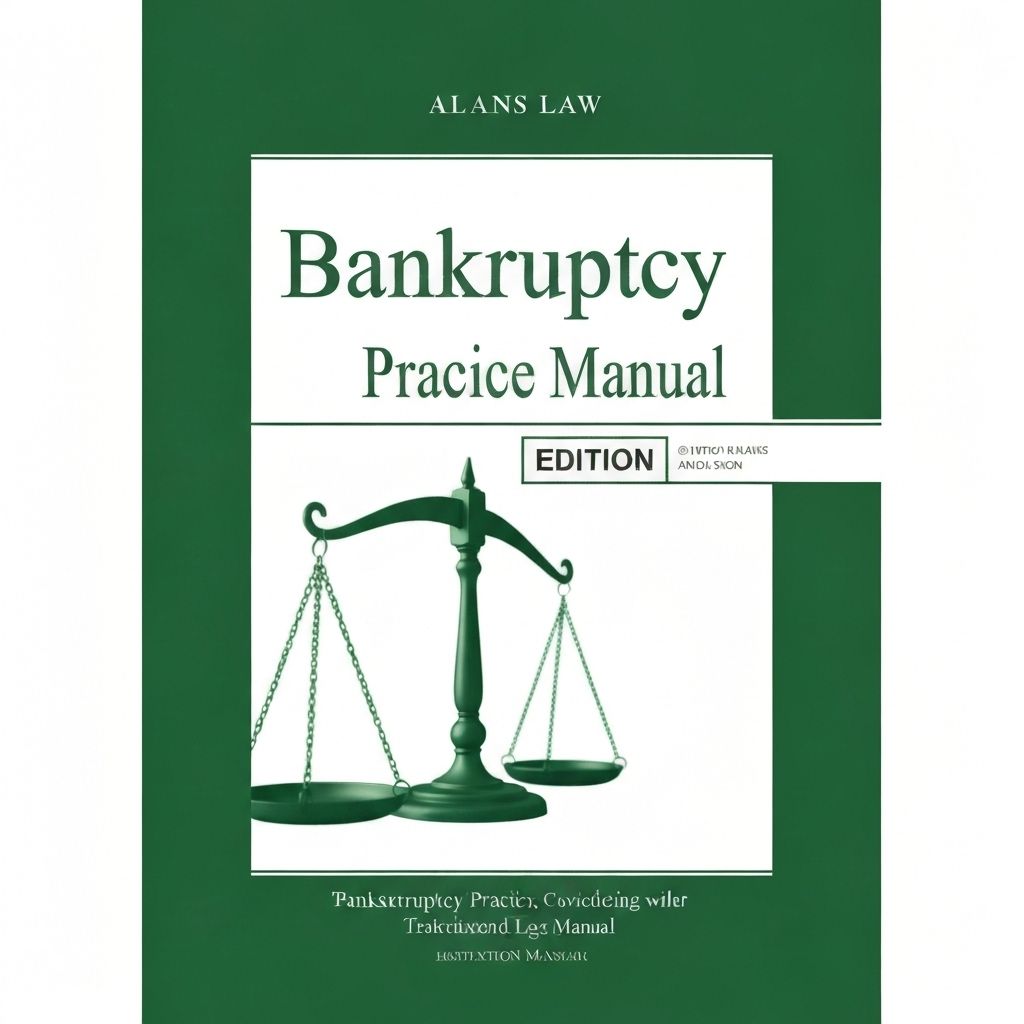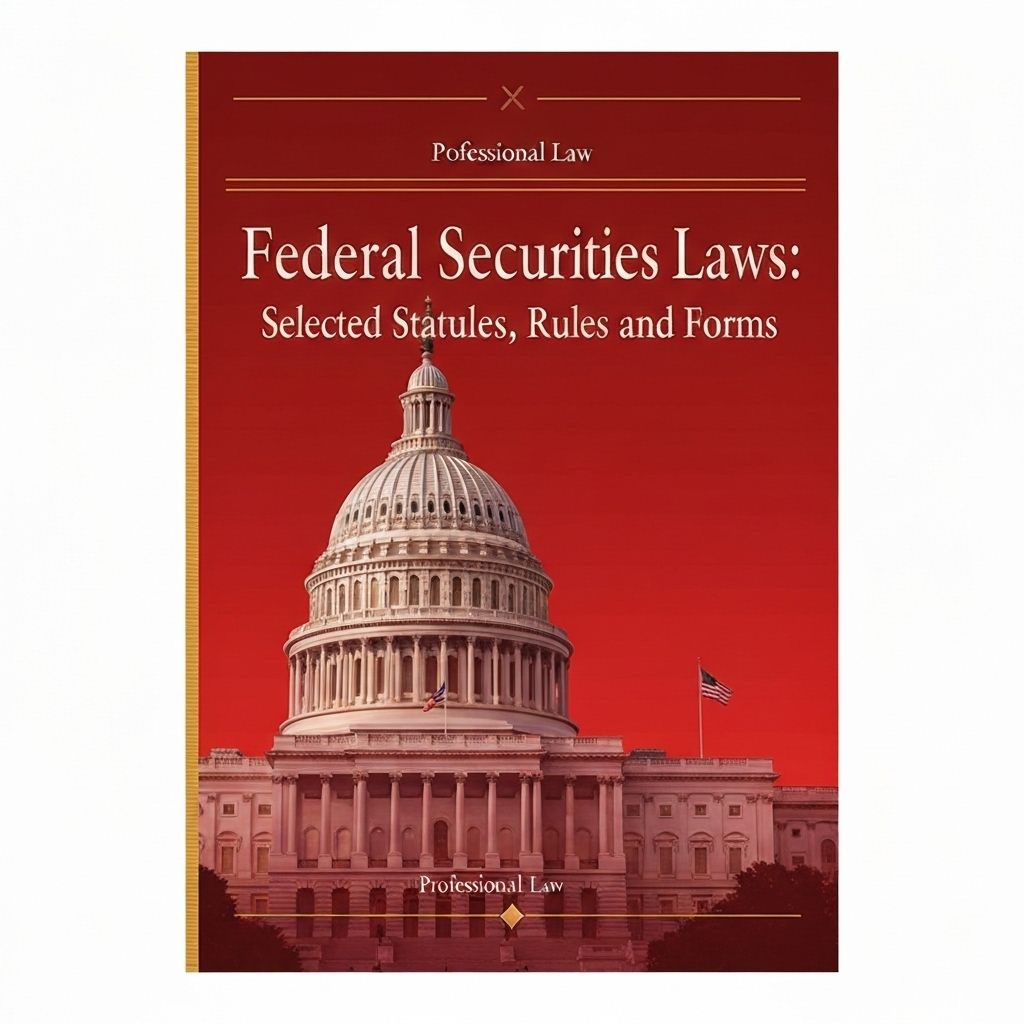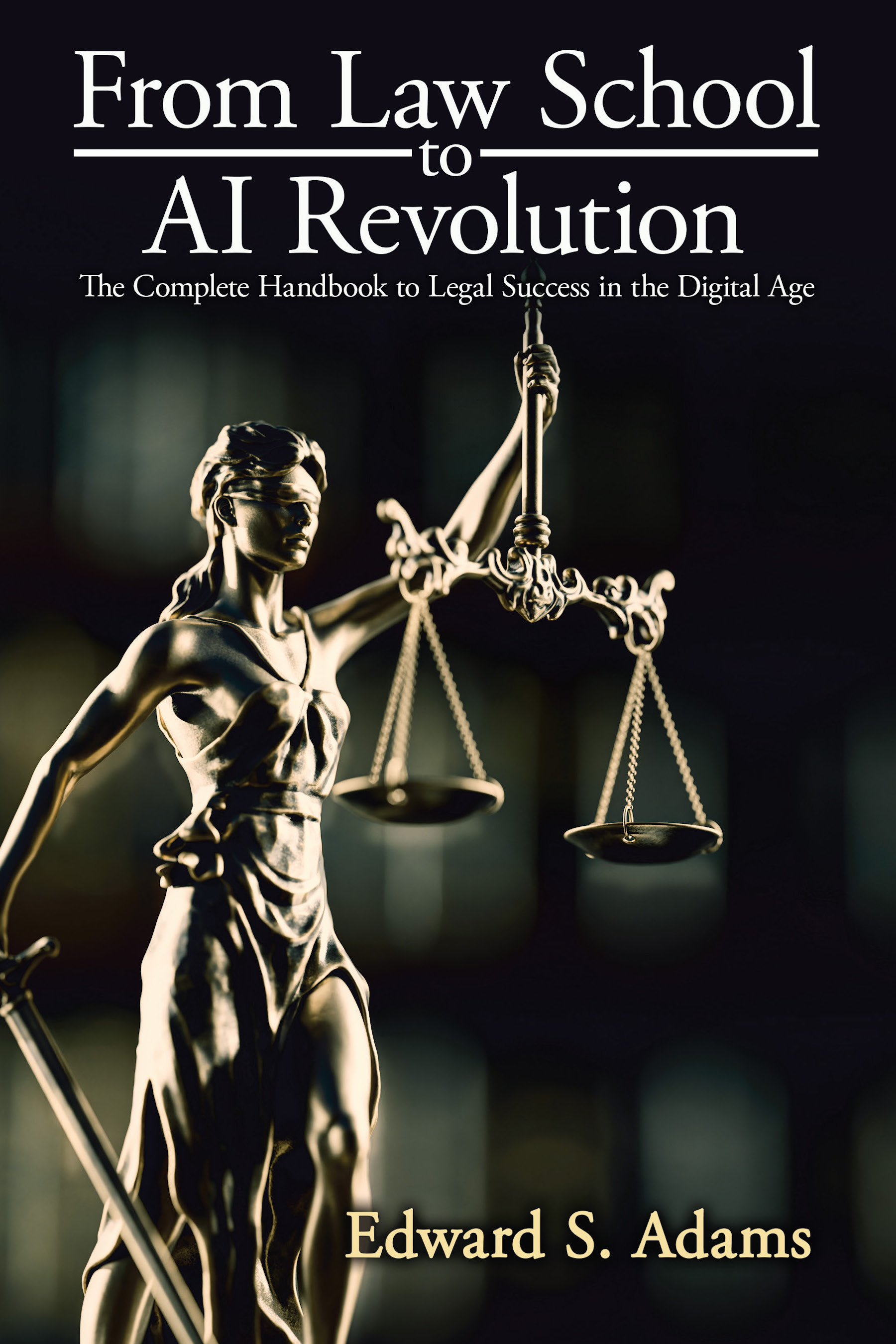About
Academic Excellence and Leadership
As the Howard E. Buhse Professor of Law and Finance at the University of Minnesota Law School, Professor Edward S. Adams stands as one of America's most accomplished legal academics and forward-thinking scholars. His exceptional academic credentials include graduation cum laude from the University of Chicago Law School, where he served as Managing Editor of the prestigious University of Chicago Law Review, followed by an MBA with highest honors from the Carlson School of Business (top 1% of class) and undergraduate studies magna cum laude at Knox College (top 1% of class).
Professor Adams has served with distinction as Associate Dean for Academic Affairs (1997- 2000) and Director of Professional Development Programs. His teaching excellence has been recognized with multiple Stanley V. Kinyon Teacher of the Year Awards (1994, 1996), the Julius E. Davis Chair (1999), and the Vance K. Opperman Research Scholar Award (1998).
Revolutionary Scholarly Vision
Professor Adams has authored over 40 books and editions and dozens of scholarly articles that have appeared in the nation's most prestigious law journals, including the University of Chicago Law Review, California Law Review, University of Pennsylvania Law Review, New York University Law Review, Virginia Law Review, and Vanderbilt Law Review. His scholarship is distinguished by its pioneering application of interdisciplinary methodologies and futuristic thinking to solve complex legal problems.
Groundbreaking Interdisciplinary Contributions
Mathematical and Scientific Innovation in Law:
- "Fuzzifying the Natural Law--Legal Positivist Debate" (1995) - Revolutionary application of fuzzy logic to fundamental jurisprudential questions, decades ahead of computational approaches to legal theory
- "At the End of Palsgraf, There is Chaos" (1998) - Pioneering use of chaos theory to reconceptualize proximate cause in tort law, bridging legal and physical sciences
- "Solving a Profound Flaw in Fraud-on-the-Market Theory" (1997) - Innovative application of Arbitrage Pricing Theory to securities fraud damages, transforming quantitative analysis in legal practice
Market Design and Economic Theory:
- "A Market-Based Solution to the Judicial Clerkship Selection Process" (2000) - Applied game theory and market design to solve institutional coordination problems
- "Wedding Carlson and Schwartz: Understanding Secured Credit as a Fuzzy System" (1994) - Early application of systems theory to commercial law
Transformative Proposals for Legal Profession Reform
Visionary Business Structure Innovation:
- "Law Firms on the Big Board?: A Proposal for Nonlawyer Investment in Law Firms" (1998) - Radical reimagining of law firm capital structure, anticipating international reforms by decades
- "Rethinking the Law Firm Organizational Form and Capitalization Structure" (2013) - Comprehensive blueprint for modernizing legal profession business models
- "The Corporate Law Firm Model: Firms as Publicly-Traded Companies" (1998) - Market-based vision for professional service delivery
Empirical Research Leadership
Professor Adams pioneered the use of large-scale empirical analysis in legal scholarship:
- "Gender Diversity and Disparity in the Legal Profession" (2015) - Analyzed 33,000+ law firm partners to quantify gender equity challenges
- "Does Law School Still Make Economic Sense?" (2015) - Data-driven analysis of legal education's return on investment
- "An Empirical Constitutional Crisis: When Magistrate Judges Exercise De Facto Article III Power" (2023) - Quantitative study revealing structural constitutional problems
Social Justice and Systemic Reform
Criminal Justice Innovation:
- "Uneven Scales: How the Symbiotic Relationship Between Prosecutors and Judges Results in Unfair Criminal Proceedings" (2025) - Systemic analysis of prosecutorial bias
- "When Taint Teams Go Awry: Laundering Unconstitutional Violations of the Fourth Amendment" (2023) - Constitutional framework for protecting attorney-client privilege
Economic Justice:
- "Dismantling the Parking Ticket to Bad Bankruptcy Pipeline and its Disparate Impacts on the Black Community" (2023) - Groundbreaking analysis of structural inequality in debt collection and bankruptcy
Entrepreneurial Excellence and Business Leadership
Professor Adams uniquely combines academic brilliance with extraordinary entrepreneurial success, demonstrating rare ability to transform theoretical insights into practical business solutions.
Business Founding and Leadership
- Chairman, Focus Capital Group, Inc. (2006-2012): Founded and led investment banking firm with Minneapolis and New York offices, executing billions of dollars in M&A and financing transactions across multiple industries
- Vice-Chairman, Oak Ridge Capital Group, Inc. (2002-2006): Co-founded integrated real estate, construction, and financial services company growing to $30 million annual revenue with 200+ professionals
- Applied Materials Venture: Chairman and large shareholder of company achieving peak public valuation of $250+ million
- HSA Innovation: Facilitated growth of largest Health Savings Account administrator and investment manager in the United States
Professional Practice Excellence
Following his judicial clerkship with Judge J. Harvie Wilkinson III (U.S. Court of Appeals, Fourth Circuit), Professor Adams practiced at the international law firm Latham & Watkins, focusing on sophisticated corporate transactions, structured finance, and bankruptcy reorganizations. From 2001 onward, Professor Adams has variously served as Of Counsel to a prominent hundred plus attorney Twin Cities law firm, founded a ten-person, multi-attorney law firm specializing in corporate and securities law, and was a name partner in two other multi-attorney law firms focused on corporate and commercial transactional law and complex litigation.
International Recognition and Global Perspective
Professor Adams has served as Visiting Professor at leading international institutions:
- Bucerius Law School, Hamburg, Germany (2004) - Comparative corporate law
- Humboldt Universität zu Berlin, Germany (2005) - Corporate law instruction in German
- Tilburg University, Netherlands (2007) - International secured transactions law
- University of Navarre, Spain (2009) - Corporate finance instruction
Areas of Expertise and Teaching Excellence
Professor Adams teaches across multiple disciplines, reflecting his interdisciplinary approach:
- Bankruptcy and Creditors' Remedies
- Corporate Law and Finance
- Accounting
- Commercial Law and Secured Transactions
- Banking and Securities Law
- Entrepreneurship and Business Formation
- MBA Concepts for Lawyers
- Law and Technology
Media Recognition and Commentary
Professor Adams serves as a respected commentator for Bloomberg Law and BusinessInsider.com, with his insights featured in The New York Times and other leading publications. His expertise is regularly sought by major media outlets for analysis of corporate, financial, and legal developments.
Personal Background and Commitment to Service
A first-generation college graduate of Native American heritage (Choctaw), Professor Adams overcame significant childhood challenges including a life-altering automobile accident. His commitment to "giving back" includes:
- Founding the Introduction to Law Program for disadvantaged high school students
- Creating the People's Law Program providing free legal services
- Co-founding projects supporting military families during the Persian Gulf conflict
- Serving as class representative for record-setting $25+ million alumni fundraising campaign
Athletic and Personal Pursuits
Professor Adams maintains an active lifestyle reflecting his dynamic approach to life:
- Alpine skiing
- Mountain climbing
- Hang-gliding
- Golf
- Triathlon competition
- Youth sports coaching (hockey, baseball, golf)
- Fiction and non-fiction writing
Professional Service and Leadership
Committee Leadership:
- Executive Committee Member, Article 9 Drafting Committee
- Chair, Educational Policy Committee (University of Minnesota Law School)
- Co-Chair, Adjunct Appointments Committee
- Member, University Budget and Finance Committee
Directorships and Advisory Roles:
- Multiple public and private company boards
- Chairperson, noteholders committee in largest steel industry bankruptcy reorganization in American history
- Expert witness in prominent commercial and corporate matters
The Adams Legacy: Bridging Theory and Practice
Professor Adams represents a unique synthesis of academic excellence, practical business acumen, and visionary thinking. His scholarship consistently anticipates major developments in law and business, while his entrepreneurial success demonstrates the practical application of his theoretical insights. Whether applying chaos theory to tort law, proposing public ownership of law firms, or using empirical analysis to expose constitutional crises, Professor Adams combines intellectual rigor with transformative vision.
His work stands as a testament to the power of interdisciplinary thinking and the importance of bridging the traditional divide between academic theory and practical application. In an era of rapid technological and social change, Professor Adams provides both the analytical tools and entrepreneurial experience necessary to navigate the legal profession's ongoing transformation.
Education
- Managing Editor, University of Chicago Law Review
- Graduated Cum Laude
- Graduated with Highest Honors (Top 1% of Class)
- Graduated Magna Cum Laude (Top 1% of Class)
Expertise
Deep understanding of bankruptcy law and creditors' rights.
Expertise in corporate governance, mergers and acquisitions, and financial regulations.
Comprehensive knowledge of accounting principles and financial analysis.
Extensive knowledge of commercial law and secured transactions.
Expertise in banking regulations and securities law.
Experience in guiding entrepreneurs and forming new businesses.
Bridging business and legal education with MBA-level concepts.
Knowledge of the intersection of law and technology.
Representative Books

Essential resource for corporate attorneys and business counselors navigating complex legal and business issues.

Detailed manual covering all aspects of bankruptcy law, from filing procedures to complex reorganizations.

In-depth examination of federal securities laws and their practical applications in modern finance.
Newly-Released Book

The legal industry is being rebuilt in real time. This book is the first end-to-end field manual that helps you capitalize on that shift—showing aspiring and practicing lawyers how to make smarter school choices, build durable skills, price and deliver work the way modern clients buy, and ride the AI wave without being crushed by it. It's data-driven, practical, and relentlessly focused on outcomes.
Key Topics Covered:
Strategic Law School Entry - Position yourself from day one with the best ROI
Big Law Economics - Golden handcuffs and the new math of legal practice
Alternative Revenue Streams - Replace hours with value-based billing models
AI Revolution in Legal Practice - How AI is reshaping the billable hour
Professional Brand Building - Reputation systems for the digital age
Emerging Practice Areas - High-growth niches in tech law and beyond
The Disruption Factor - When accountants crash the party and law firms go public
Work-Life Integration - Structural fixes beyond wellness slogans
Implementation Strategy - Turn-key roadmap with templates and tech stacks
Who It's For:
- • Prospective and current law students weighing schools, programs, and debt vs. ROI
- • Junior associates seeking faster learning curves and saner goals in AI-accelerated practice
- • Mid-career lawyers ready to pivot into growth niches or redesign pricing and delivery
- • Entrepreneurial attorneys building modern boutiques and productized services
Available exclusively on Amazon.com.
Articles
Corporate Law, Governance, and Finance
This article critiques the judicial tendency to disregard explicit contractual provisions that govern attorney-client privilege in corporate asset sales. It argues that courts err when they override negotiated agreements by looking to the "practical consequences" of a transaction, leading to unjust outcomes.
This article challenges the viability of the traditional law firm partnership model, arguing that its structural and capitalization weaknesses contribute to instability and failure. It advocates for allowing non-lawyer and public ownership of law firms, drawing on international examples from the U.K. and Australia.
This article addresses the foundational corporate governance problem of the separation between ownership (shareholders) and control (management), a central issue in modern corporate law. It examines the agency costs and conflicts of interest that arise when corporate managers' incentives diverge from those of the company's owners.
In the wake of the Enron and Global Crossing scandals, this article provides a comparative analysis of corporate governance regimes in the United States, Japan, Germany, and France. It argues that while no single system is perfect, a cross-national study reveals valuable lessons for reform.
This seminal article proposes a radical transformation of the legal profession's business structure by advocating for non-lawyer investment in law firms. The authors challenge the traditional ethical prohibitions on outside ownership, arguing these rules stifle innovation and limit access to capital.
This article identifies a critical flaw in the traditional methodology for calculating damages in securities fraud class actions. The authors propose a novel solution, applying a sophisticated financial model derived from Arbitrage Pricing Theory to more precisely measure damages attributable to Rule 10b-5 violations.
Bankruptcy, Insolvency, and Commercial Law
This article exposes a systemic trap where excessive municipal fines and fees disproportionately channel members of the Black community into unsuccessful and harmful bankruptcy proceedings. Through a compelling narrative, it illustrates how escalating penalties for minor infractions create a cycle of debt, job loss, and legal entanglement.
This article identifies a critical gap in the legal framework for the burgeoning cannabis industry: the inability of plant-touching businesses to access federal bankruptcy protections due to federal prohibition. It champions the Assignment for the Benefit of Creditors (ABC), a state-law alternative, as a practical and effective solution.
This article dissects the phenomenon of large-scale law firm bankruptcies, using prominent failures like Dewey & LeBoeuf as case studies. It argues that these collapses are not merely isolated incidents of mismanagement but are symptoms of systemic flaws in the traditional law firm business model.
This article tackles the intricate problem of managing cross-border insolvencies, focusing on the tension between universalist and territorialist approaches. The authors advance the novel thesis that the law's success lies not in its universalist ideals, but in its pragmatic inclusion of territorialist protections.
This article re-examines the foundational doctrine of finality in commercial paper law, established by the landmark case Price v. Neal. The authors argue that the traditional, rigid application of this rule is ill-suited for modern commercial transactions and propose transforming it from an immutable dictate into a default provision.
The Legal Profession, Education, and Social Equity
This article presents a large-scale empirical study of gender diversity and disparity within elite segments of the legal profession. The authors use quantitative data from approximately 33,000 partners to analyze the gender profile of major law firms and the law schools that feed them.
This article provides a rigorous empirical answer to the pressing question of the economic value of a law degree. Analyzing a massive dataset of over 33,000 law firm partners, the study quantifies the impact of law school attendance on the probability of achieving a lucrative "Big Law" partnership.
This article provides practical guidance for new business owners by outlining common and often fatal mistakes made in the early stages of a venture. It addresses critical errors such as failing to establish a proper legal structure and neglecting thorough market research.
This article proposes the adoption of "full circle" or 360-degree evaluation systems as a concrete tool to promote gender equity in corporate management. It argues that traditional top-down evaluation methods can perpetuate a male-dominated hierarchy by relying on subjective and potentially biased criteria.
The Judiciary, Constitutional Law, and Criminal Procedure
This article critically examines the operational dynamics of the criminal justice system, arguing that the close, symbiotic working relationship between judges and prosecutors can compromise the integrity of the adversarial process. It posits that this symbiosis creates systemic biases that disadvantage defendants, such as when judges באופן reflexively agree with prosecutorial recommendations on bail or scheduling, leading to fundamentally unfair proceedings.
This article presents an empirical study arguing that the federal judiciary faces a constitutional crisis due to its over-reliance on magistrate judges. The authors' analysis of court data reveals that Article III district judges adopt magistrate recommendations at such an abnormally high rate as to suggest an abdication of their core judicial duties.
This article critiques the Department of Justice's use of internal "taint teams" to screen seized evidence for attorney-client privilege, arguing the practice is constitutionally flawed. The authors contend that allowing a prosecutorial body to make the initial determination of privilege violates the Fourth Amendment's protection against unreasonable searches.
This article tackles the persistent challenge of selecting a jury that is both impartial and representative of the community. The authors propose an innovative solution imported from the field of corporate governance: the use of cumulative voting in the jury selection process.
This article examines the constitutional tensions that arise when police seize property from pawnbrokers that is believed to be stolen. It navigates the complex interplay between the due process and property rights of the pawnbroker and the state's legitimate interest in recovering stolen goods.
This early work analyzes the constitutionality of random drug testing programs for government employees, a significant Fourth Amendment issue at the time. The comment argues that such procedures can be structured to withstand constitutional scrutiny by properly balancing the government's interests in safety and integrity against individual privacy rights.
Interdisciplinary and Theoretical Frameworks
This article diagnoses the long-standing failures of the federal judicial clerkship hiring market, characterizing it as an inefficient and undignified "free-for-all". The author applies principles of market design, game theory, and economics to propose a new, decentralized market-based solution.
This article offers a novel approach to the interpretation of complex statutes that transcends the traditional debate between formalism and its critics. The authors introduce the concepts of expert reasoning and "fuzzy logic" as powerful tools for legal analysis.
This highly interdisciplinary article applies the principles of chaos theory to one of tort law's most intractable problems: the doctrine of proximate cause. The authors argue that the unpredictability and conceptual difficulties stemming from the landmark Palsgraf case are best understood through chaos theory.
This article brings a novel analytical tool, fuzzy logic, to bear on the foundational jurisprudential debate between natural law and legal positivism. The authors argue that the traditional, binary opposition between these two schools of thought is overly simplistic and conceptually flawed.
This article offers a new theoretical model for understanding the law of secured credit by applying the principles of fuzzy systems theory. The authors seek to synthesize the work of leading scholars in the field, arguing that their competing theories can be reconciled by viewing secured credit as a complex, "fuzzy" system.
